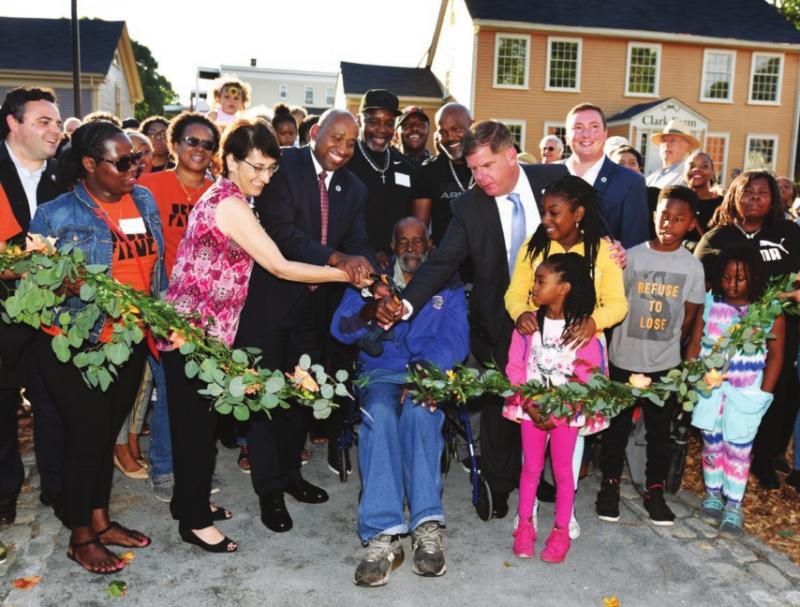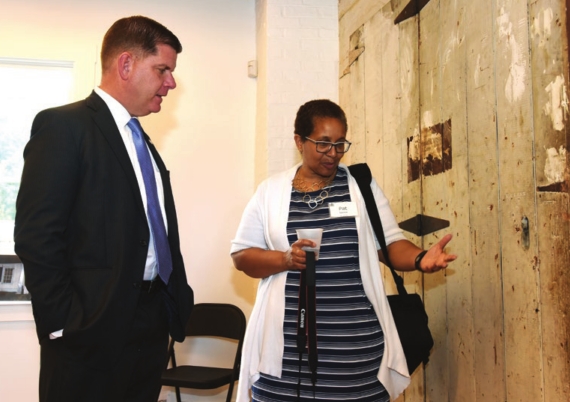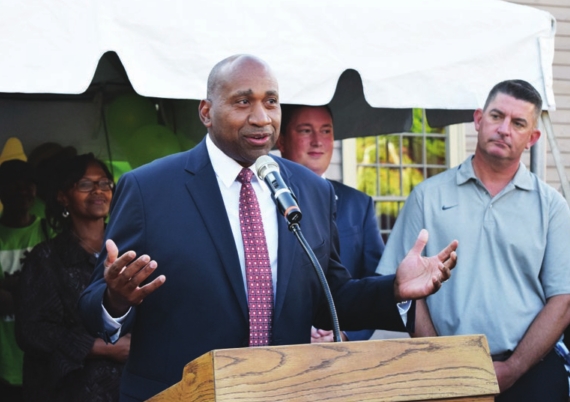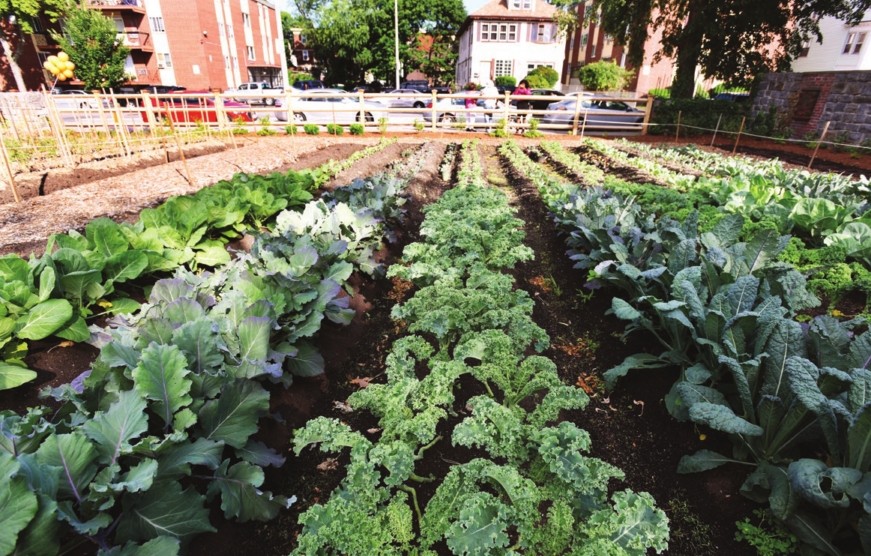
(From left to right) Kathy Kottaridis,executive director of Historic Boston Inc., state Rep. Russell Holmes, former state Rep. Mel King and Mayor Martin Walsh cut the ribbon at the Fowler Clark Epstein Farm.

Mayor Walsh speaks with Patricia Spence, executive director of
the Urban Farming Institute, at the grand opening of the Fowler Clark
Epstein Farm.

State Rep. Russell Holmes gives remarks at the
grand opening of the Fowler Clark Epstein Farm.

Rows of
vegetables at the Fowler Clark Epstein Farm.
Historic property revitalized, preserved, open to public
An 18th-century Mattapan property is now a modern urban farm facility operated by the Urban Farming Institute and is open to the public after a grand reveal of its restoration Monday night.
Elected officials, Mattapan residents and those involved in the funding and renovation of the farm gathered at 487 Norfolk Street to celebrate the new Fowler Clark Epstein Farm, an urban farming education and training center.
Over the last 200 years, the property was passed down through three different families until Historic Boston Inc. acquired it in 2015.
“This represents a $3.7 million investment in historic preservation,” said Kathy Kottaridis, executive director of Historic Boston Inc., at the grand opening. “[This farm is] going to create jobs, train people on how to grow food and distribute food to foster good local healthy environments.”
State Rep. Russell Holmes, whose district includes Mattapan, said he pushed for the city to clean up the property because “the neighbors felt it was unacceptable and ... five, six years later, it has far exceeded anything I would have imagined.”
Mayor Martin Walsh also offered remarks at Monday night’s celebration, noting the Boston Department of Neighborhood Development’s $150,000 contribution towards the project.
“What
you see here is history, public health, open space and job training,
and it’s all coming together in an exclusive model,” he said.
The
Urban Farming Institute and Historic Boston Inc. partnered with The
Trust for Public Land and the North Bennet Street School to raise $1.5
million for the project. The restoration was also financed by $400,000
and $350,000 state and federal historic tax credits.
The
project, designed by the architecture firm Perkins+Will, included the
restoration of the original farmhouse and barn, which now contains a
demonstration kitchen, classrooms and living quarters for the farm
manager.
The green
space in front and around the two buildings contains 30,000 square feet
of cultivated vegetables such as collard greens, kale, tomatoes and
peppers.
However, Holmes noted, the project is not entirely complete.
“We’re
not done,” he said. “There is still another $300,000 that we need. We
need a greenhouse in the corner to make sure when winter comes, it’s
still a productive site year round.”
Both
Holmes and Walsh hinted that the farm would receive funds from the
Community Preservation Act, which creates an annual fund of $20 million
through a 1 percent surcharge on residential and business property tax
bills in Boston.
“I
want to thank all the voters of Boston for passing CPA because this
project was not easy to pull the money together. With the CPA having
funds available ... it’s going to come in handy,” Walsh said.
Kwabena
Nkromo, donor relations coordinator for UFI, said people can register
to learn how to work on the urban farm for $100 for eight weeks of
training.
“Some classes will be subsidized though,” he said.
Nkromo also added that the farm will host a farmer’s market every Friday starting in July.
Though
the Fowler Clark Epstein Farm was just completed, Kevin Essington,
Massachusetts director for the Trust for Public Land, gave Boston
residents something else to look forward to.
“We have raised $1.2 million to build five new urban farms in Boston,” said Essington.
The
Trust for Public Land helped create the East Boston Greenway and the
South End Community Gardens. Essington illustrated the impact of open
and green space in a city.
“This is Boston’s newest farm, within a 10-minute walk of 7,348 Bostonians,” he said.